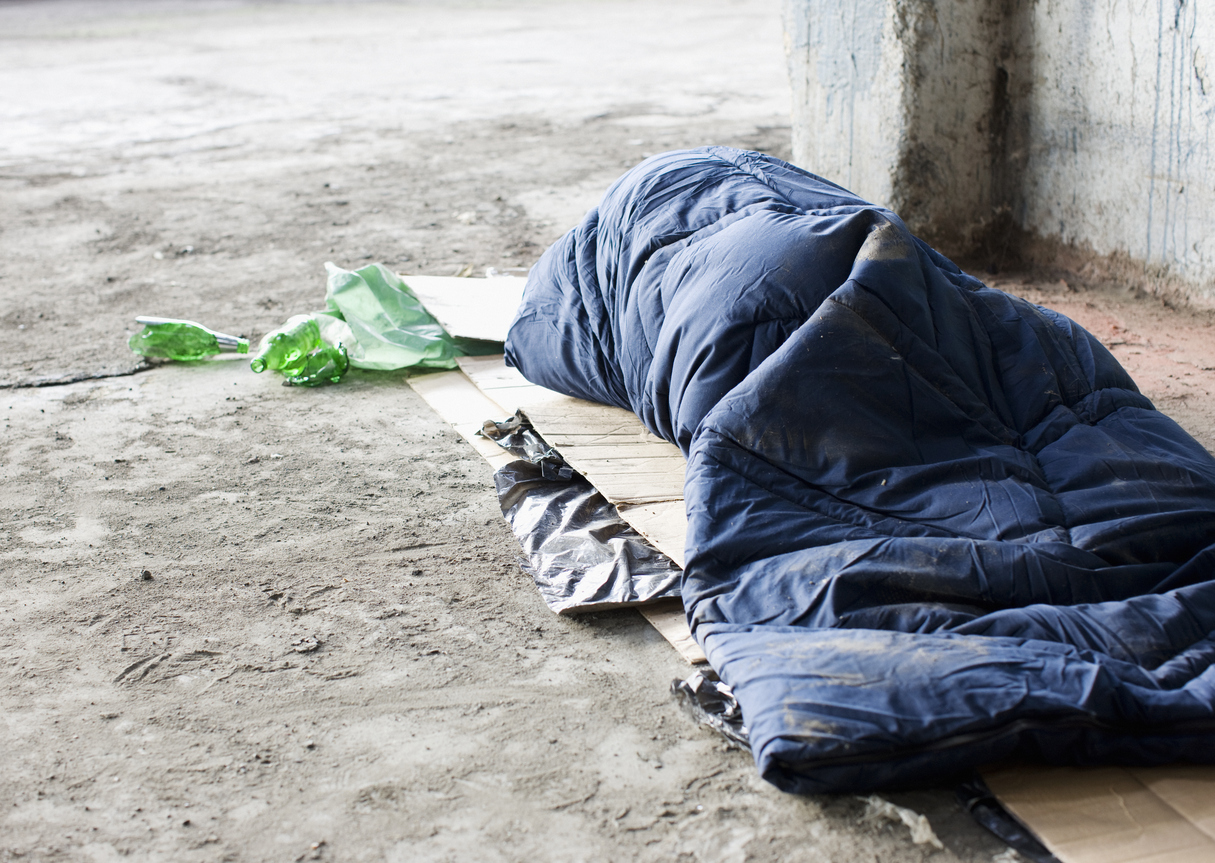Shelter’s analysis shows councils were only able to help one in five households at risk of homelessness in the three months following the end of the first national lockdown last July.
The charity also insists a lack of suitable social housing is to blame for councils’ difficulties in finding people a new home – only half of the households found to be homeless were helped into a new property over the period.
The eviction ban drove a 41 per cent decrease in households threatened with homelessness after being served with a Section 21 notice. Under normal circumstances, the notice means families can be evicted without a reason being given.
The Everyone In scheme largely explained the 42 per cent rise in single adult households stuck in temporary accommodation. A total of 93,490 households were living in hotels, B&Bs and other stop-gap properties as of September 30 last year – up seven per cent year-on-year – including 54,450 households with children.
Neate added: “Covid-19 has ripped open the cracks left by the gross shortage of decent social homes in this country. Thousands of people are struggling to survive the pandemic without a home thanks to decades of political neglect.
Advertising helps fund Big Issue’s mission to end poverty
“Even with the curbs on legal evictions, people are still being thrown into homelessness as they have throughout. From the taxi-driver sleeping rough because the council say they cannot help, to the mother fleeing domestic abuse in search of a place of safety – this pandemic continues to be a never-ending nightmare.”
The new figures also give an indication of the scale of hidden homelessness after Covid-19 measures saw people previously staying with friends and family – often known as sofa surfing – left with nowhere else to go.
A third of households who were owed council support for homelessness were sofa surfing before asking for help, a rise of 3,400 households in one year.
That was the main driver of homelessness ahead of the loss of a private tenancy and domestic abuse which made up 13 and 12 per cent of cases respectively.
Youth homelessness charity Centrepoint’s head of public affairs Paul Noblet said the figures show “the effectiveness of the mass mobilisation of resources by Whitehall, councils and charities”.
But Noblet warned more resources are required to prevent rising homelesness as the Covid-19 pandemic continues.
Advertising helps fund Big Issue’s mission to end poverty
“Despite increased government investment we know from our own work that the situation for homeless young people has worsened since these figures were compiled last September due the toxic combination of limited affordable housing and rising youth unemployment,” said Noblet.
“If the government is going to achieve their target of ending rough sleeping by 2024, and more broadly addressing issues like sofa surfing, we need to see money continue to be invested in age-appropriate accommodation for vulnerable young people with nowhere else to turn.”
The Big Issue is taking on unemployment for both the young and old with the Ride Out Recession Alliance.
The RORA Jobs and Training programme is a one-stop shop to help people get back on their feet. The Big Issue has joined forces with Adzuna to create The Big Issue Jobs site with hundreds of thousands of job to find alongside tips and advice on how to get into work.
Training provider FutureLearn has also helped The Big Issue create the RORA Toolkit, an action plan to help those dealing with all that unemployment brings.
The RORA toolkit includes a free three-month digital subscription to The Big Issue, a weekly newsletter with tips on job hunting, access to free or discounted training, including a 20 per cent discount on selected courses with FutureLearn.
Advertising helps fund Big Issue’s mission to end poverty









